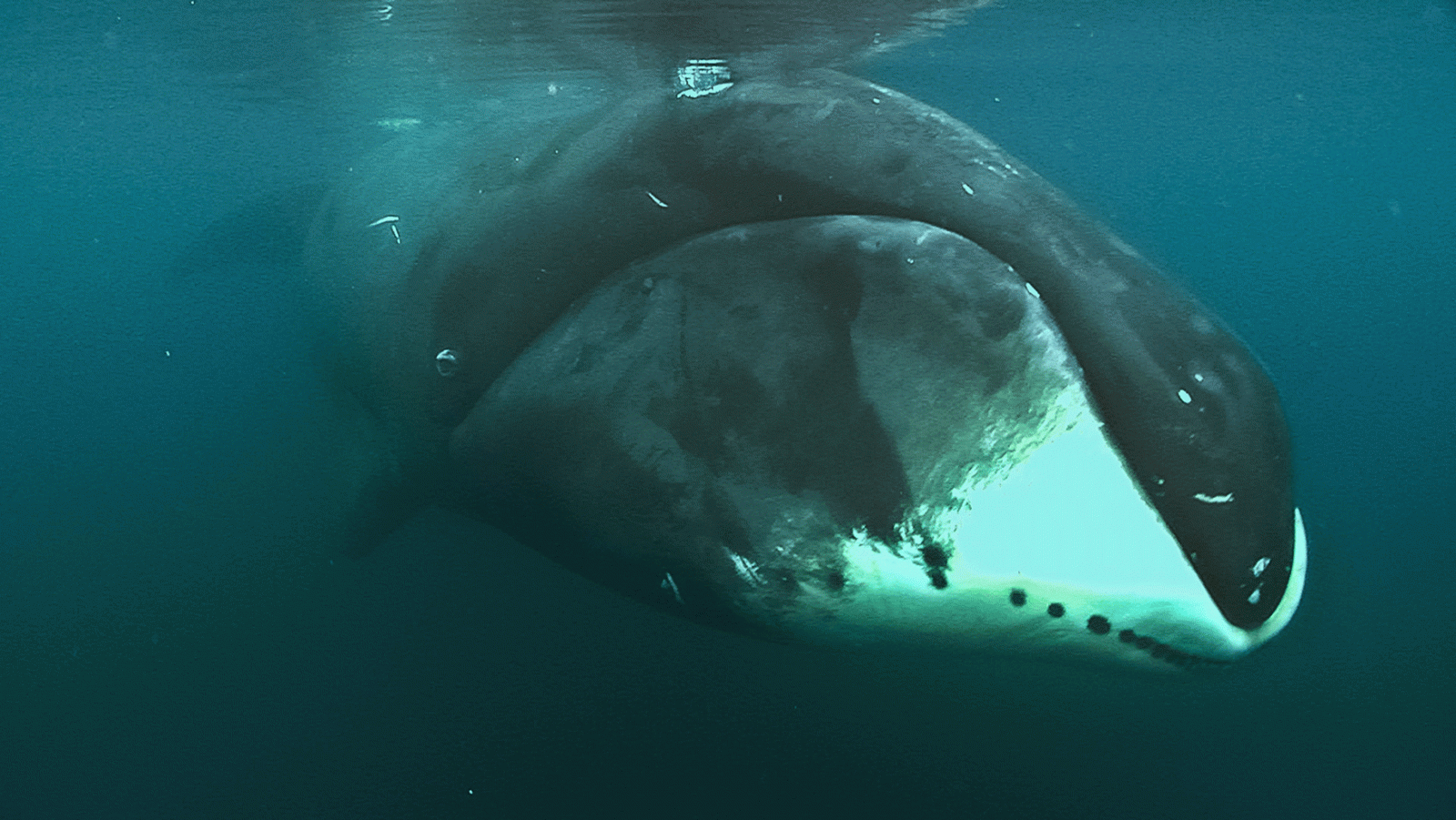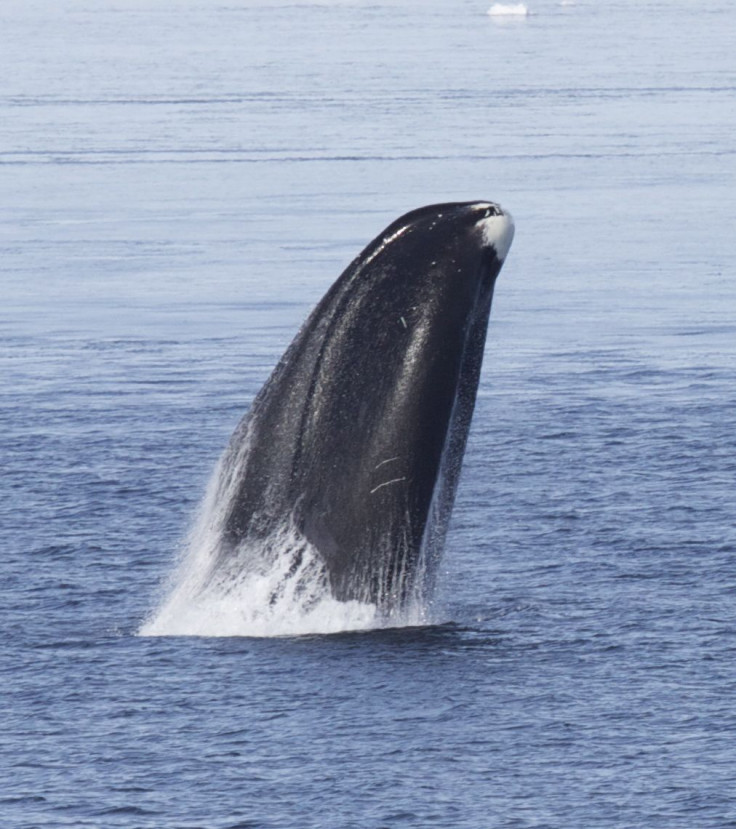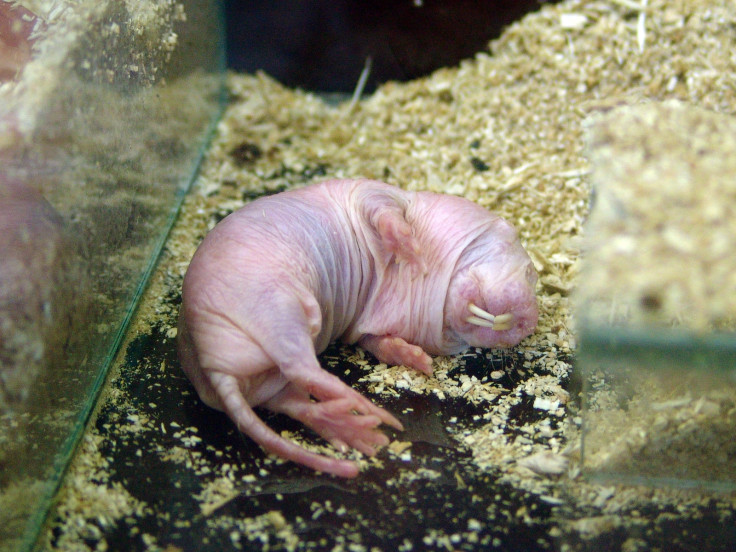Bowhead whale longevity tricks: There is 'no reason humans cannot live to 200'

There is no reason why humans cannot reach the age of 200, an expert has said following a study into the longevity of bowhead whales.
Bowheads are the oldest living mammals known, and evidence suggests they can live for over 200 years. One study found a male to be 212 years with a 30 year margin of error – meaning it could be almost 250.
João Pedro de Magalhães, of the University of Liverpool, told IBTimes UK that as well as biochemical evidence, anecdotal reports suggest bowheads can live very long lives. "There have been pieces of harpoons found in whales that are over 100 years old. I'm convinced they live longer than us, but how long I don't know."
Researchers believe bowhead whales could provide scientists with secrets of how to fight age-related diseases and increase our lifespan exponentially.
Published in the Cell Press journal Cell Reports, scientists presented the complete bowhead whale genome and have identified key differences about it in comparison to other mammals – importantly to do with cell division, DNA repair and ageing that may improve longevity.
The natural causes of bowhead whale deaths is unknown – when they die, they tend to just sink to the bottom of the ocean. However, in Alaska the species is hunted annually, so scientists are able to inspect the creatures for signs of disease.
"One of the things they found is evidence that bowheads often have parasites and microbes that could be pathogenic," de Magalhães said. "Whether this will cause death we don't know. But they do show signs of some diseases, developmental defects as well. The only natural cause in a bowhead found so far was diagnosed as a twisted intestine.
"We don't really know what they die of by in large. There are clues but we need more evidence."

To find out why bowheads live so long, the team compared its genome to other species to get clues about the mechanisms related to longevity, such as those related to DNA repair.
De Magalhães said it is his belief that bowhead cells respond to DNA damage in a different way, allowing them to accumulate less destruction over their lives.
And this is true of many species. De Magalhães was also involved in studies of the naked mole rat – a creature that can live up to 31 years, outliving an average mouse by 27 years. Scientists believe the mole rat's lifespan is linked with high-levels of "quality-control proteins" that eliminate incorrectly manufactured or damaged proteins before they cause problems.
"The way I see it, different species use different tricks to live longer – to evolve a long lifespan – I think human use tricks, naked mole rats use tricks and bowheads and others species use others," he said.
"Some of them will overlap, but if we can find those different tricks, then we can hopefully find ways to improve human health and fight disease. But they can be different in different species – in the naked mole rat, it's not the same as in the bowhead whale. We can take information from all these species to try to understand what possible mechanisms could be responsible for extended longevity and health preservation."
Explaining where the researchers will turn to next, de Magalhães said they hope to start experiments on mice but are awaiting funding. "You can take the human cell line or a mouse cell line and you can modify a particular gene so it has the sequence of the bowhead whale.

"Then you can find out whether those changes and mutations have a fingertype for example DNA repair or self-regulation – in the cell line. That's something we are looking into in both the bowhead whale and the naked mole rat.
"The ideal experiment would be to take some of the interesting genes found in the bowhead, put them in the mouse and see what would happen – if the animals would live longer or if they were protected against age-related diseases."
While using their findings to improve human health and increase lifespan is still a way off, de Magalhães said the possibilities are wide-ranging.
"I don't think there's any limit to it. Human lifetime has expanded – what a number of labs have discovered is that you can genetically manipulate the lifespans of mortal systems including mice and rats – this has been done.
"We do know that ageing can be manipulated by genetic intervention. There is a genetic regulation of ageing that we know of both from experimental modelling systems and just from looking at species differences.
"Even our ageing process is considerably retarded when compared to other primates and there has to be a genetic basis to it. Likewise the bowhead whale which lives longer than humans must have some sort of genetic mechanisms for it.
"There's no reason to think we cannot live to 200 years. It's not going to be easy, but it is certainly possible."
© Copyright IBTimes 2024. All rights reserved.







